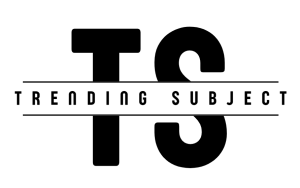As families gear up for the back-to-school season, it’s important to be on the lookout for scams that are targeting students and parents. With the rush to get everything ready for the new school year, scammers are taking advantage of the chaos to rip people off in sneaky and creative ways. Even the Federal Trade Commission (FTC) has issued warnings, urging consumers to stay vigilant and protect themselves. Let’s dive into four common scams that are making the rounds this season and what you can do to avoid them.
1. Back-to-School Shopping Scams
With the cost of school supplies on the rise, many families are on the hunt for the best deals. Unfortunately, scammers know this all too well and have set up traps to take your money. Terri Miller, a consumer education specialist at the FTC, warns that online shopping scams are rampant, especially on social media. Scammers often create fake ads that mimic real companies, offering high-priced items like tech gadgets at suspiciously low prices. If something seems too good to be true, it probably is.
To protect yourself, Miller suggests doing your homework: research the seller beyond the platform where you saw the ad, and always use a credit card for purchases. This way, you have more protection if the item doesn’t arrive or isn’t what you ordered. And remember, avoid sellers who ask for payment through gift cards, wire transfers, or cryptocurrency—they’re usually scammers.
2. Textbook Scams
Textbooks are notoriously expensive, and students often look for cheaper options through online classified ads, third-party sellers, or social media marketplaces. However, scammers are taking advantage of this by offering textbooks at significantly reduced prices. Shawn Hall, a vice president at Pindrop, highlights that these scams often result in the books never arriving or counterfeit copies being sent instead.
To avoid getting scammed, stick to reputable sources like official university bookstores, verified online retailers, or established textbook rental services. Always check reviews and ratings to ensure you’re dealing with legitimate sellers, and use secure payment methods like credit cards or PayPal, which offer buyer protection.
3. Investment Scams for Tuition
With tuition bills looming, some families fall victim to investment scams that promise quick and high returns to help pay for college. Hall warns that these schemes often involve pyramid schemes or fraudulent investment opportunities that can lead to significant financial losses.
If an investment sounds too good to be true, it likely is. Be cautious of any investment promising guaranteed high returns with little risk. Always verify the credentials of the person or company offering the investment, and consult a financial professional before making any major financial commitments.
4. Scholarship Scams
Scholarship scams prey on students and parents desperate for financial aid. These scams often involve fake scholarships that require personal information or fees to access. Dan Cusick, a fraud and claims executive with Wells Fargo, explains that these scams can lead to identity theft or unauthorized bank withdrawals.
Be wary of unsolicited calls, texts, social media posts, or emails that ask for personal or financial information. Watch out for offers of “guaranteed” scholarships you didn’t apply for or services that require upfront payment. To ensure you’re pursuing legitimate scholarships, consult trusted sources like school guidance counselors or use approved websites such as Federal Student Aid or the College Board.








